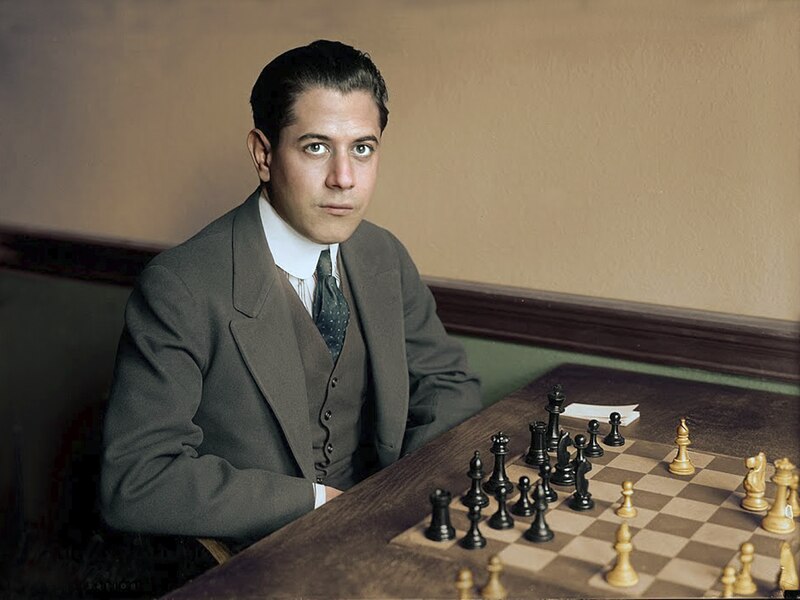You too can become a Capablanca
 The title of this article is deliberately humorous, because who will take seriously the statement "You too can become a Capablanca"? After all, Capablanca was one of the greatest chess players of all time! Can an ordinary amateur chess player become as outstanding a chess player as Jose Raul Capablanca? Can he master this extremely complex game that combines strategic thinking with tactical combinations?
The title of this article is deliberately humorous, because who will take seriously the statement "You too can become a Capablanca"? After all, Capablanca was one of the greatest chess players of all time! Can an ordinary amateur chess player become as outstanding a chess player as Jose Raul Capablanca? Can he master this extremely complex game that combines strategic thinking with tactical combinations?
Where do amateur game mistakes come from? I often find myself playing automatically, according to patterns, without thinking before each move, as if the game plan I have in my head must always succeed, and yet you have to take into account that the opponent you are playing against is a thinking being and will try by all means to stop our plan and find a way to defeat us.
Therefore, I would recommend everyone to be careful and reflect on the opponent's moves. Before we move a piece or a pawn, it is worth asking ourselves: - why did our opponent move so and not otherwise? Does the opponent's move pose any real threat to us? Usually, when we don't see the threat of an opponent's move, it's not that there is no threat at all, but that their plan is simply not visible at first glance, so you need to stop and think a little deeper so as not to miss something important.
Let's move on to the next issue, which is chess training. Typically, amateurs use the method: play as much as possible and as quickly as possible (usually blitz matches, where each player has only 3 minutes to play the game). I went through this too, playing a lot of random games where there were mistakes on both sides. Do these kinds of games have a didactic value?
You can doubt it. As one of the greatest chess tacticians Rashid Nezhmetdinov put it, "he who analyzes the blitz is a fool." It's hard not to agree with him. So what would I recommend to amateur chess players? First of all, read chess literature, there are many interesting publications on chess, it's best to start with the classics, such as "Zurich Grandmasters Tournament 1953" by David Bronstein, although it won't hurt to take advantage of valued books by contemporary authors, such as Jacob Aagaard ("Aggressive chess” part 1 and 2) or the works of famous chess coaches such as Mark Dworecki and Artur Jusupov ("Methods of Debut Preparation", "Methods of Chess Training" or "Development of Creative Thinking"); for more ambitious readers: "My great predecessors" by Garry Kasparov or "My system" by Aron Nimzowitsch. So much for the theory for now.
When it comes to practice, it is worth solving chess problems (tasks) on the chesstempo website or playing (preferably 15 or more minute games) with live opponents (or chess programs, such as LCZero, Stockfish, Chessmaster, Fritz or ChessTitans) on chess websites such as chess.com, lichess.org, FICS (Free Internet Chess Server) or the Polish website kurnik.pl. It is worth playing with opponents of equal strength, so as not to win too easily or lose series after game after game.
Marek Wojnicki